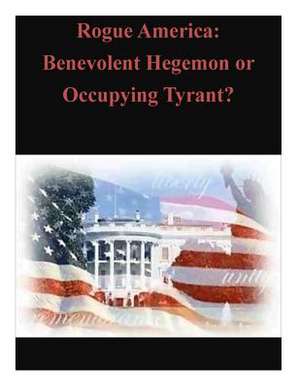Rogue America
Autor Command and General Staff Collegeen Limba Engleză Paperback
Preț: 83.77 lei
Nou
Puncte Express: 126
Preț estimativ în valută:
16.03€ • 16.74$ • 13.27£
16.03€ • 16.74$ • 13.27£
Carte disponibilă
Livrare economică 14-28 martie
Preluare comenzi: 021 569.72.76
Specificații
ISBN-13: 9781503055834
ISBN-10: 1503055833
Pagini: 56
Dimensiuni: 216 x 279 x 3 mm
Greutate: 0.15 kg
Editura: CREATESPACE
ISBN-10: 1503055833
Pagini: 56
Dimensiuni: 216 x 279 x 3 mm
Greutate: 0.15 kg
Editura: CREATESPACE
